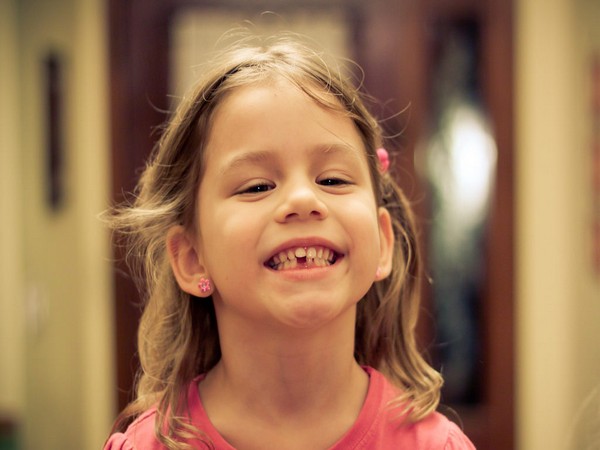Washington: Scared, ashamed, happy or proud – how do children feel when they lose their first baby tooth? An interdisciplinary research found that children’s feelings are predominantly positive.
A group of researchers at the University of Zurich has now revealed that previous visits to the dentist’s as well as parental background and level of education affect how children experience the loss of their first tooth. The findings of the study appeared in the International Journal of Paediatric Dentistry.
Deciduous teeth, more commonly known as milk or baby teeth, are the first set of teeth that develop in children.
These teeth usually fall out and are replaced by permanent teeth. Children generally lose their first baby tooth when they’re about six years old; the tooth becomes loose and eventually falls out, leaving a gap which is then permanently filled by its replacement tooth. This gradual process is probably one of the first biological changes
to their own bodies that children experience consciously.
The emotions that accompany this milestone are extremely varied, ranging from joy at having finally joined the world of grown-ups to fear about the loss of a body part.
Researchers examined the feelings that children experience when they lose their first baby tooth, and which factors are at play. The scientists surveyed parents of children who had already lost at least one of their milk teeth. Of the nearly 1,300 responses received for the study, around 80 percent of parents reported positive feelings, while only 20 percent told of negative emotions. Raphael Patcas, the first author of the study, said, “The fact that four out of five children experience the loss of a baby tooth as something positive is reassuring, for parents and dentists alike.”
The researchers also found that previous visits to dentists played a role when it comes to children’s feelings. Children whose previous visits were cavity-related and thus perhaps associated with shame or guilt experienced fewer positive emotions when they later lost their first baby tooth. If, however, previous dental appointments were the result of an accident, and thus an abrupt, unexpected and painful event, then the loss of the first milk tooth was more likely to be associated with positive emotions.
According to dental researchers, one possible explanation for this is that baby teeth loosen gradually before falling out – a process that, unlike an accident, unfolds slowly and predictably. This is also supported by the fact that children who experience the loosening of their tooth over an extended period of time tend to have more positive feelings: the longer the preparation and waiting time, the greater the relief and pride when the tooth finally falls out.
[source_without_link]ANI[/source_without_link]

